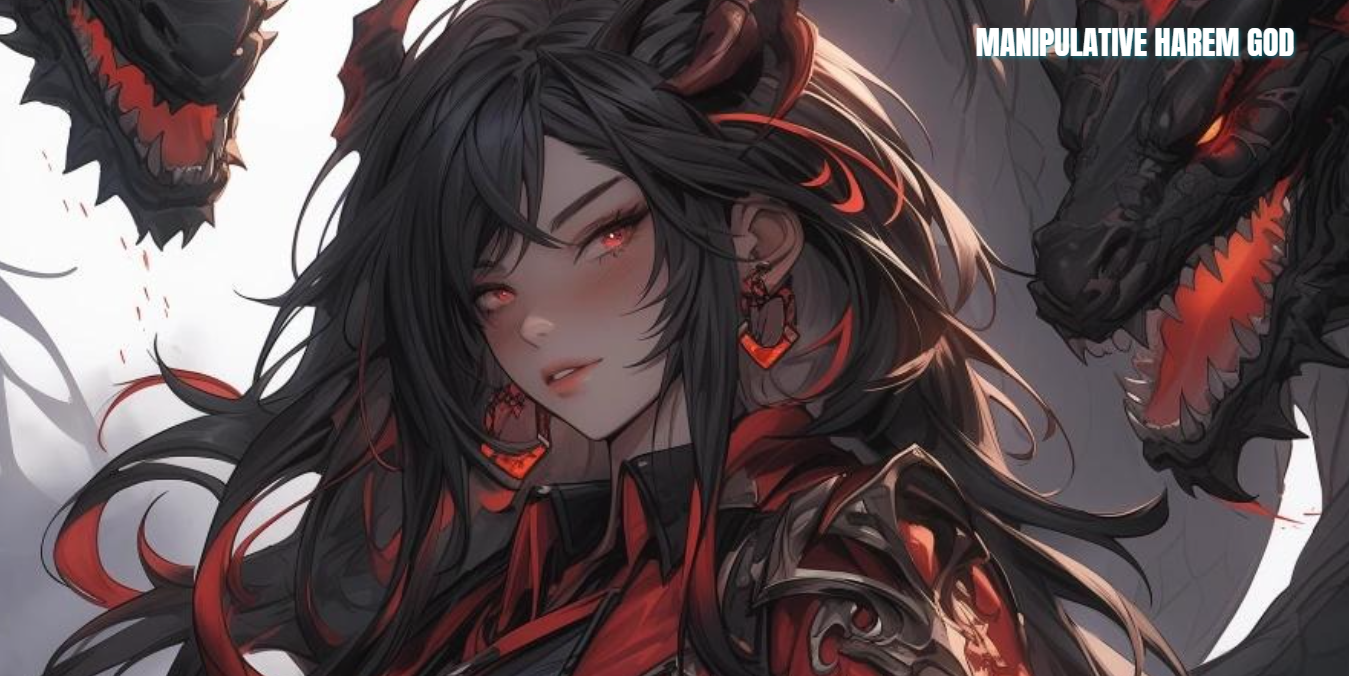The Manipulative Harem God: An In-Depth Exploration of Zhang Wei’s Complex Character
In the world of literature and media, few characters are as intriguing and multifaceted as Zhang Wei, often referred to as the “Manipulative Harem God.” This character has captivated audiences with his moral ambiguity, strategic brilliance, and the complex relationships he navigates within his harem.
Unlike many stereotypical harem protagonists, Zhang Wei is not driven by innocence or naivety but by a sharp intellect and a deep understanding of human nature. This article delves into the intricacies of Zhang Wei’s character, exploring what makes him stand out in the crowded genre of harem stories, and why he has become such a compelling figure for fans and critics alike.
Introduction to the Manipulative Harem God
Who is Zhang Wei?
Zhang Wei, known as the “Manipulative Harem God,” is a character that defies conventional norms within the harem genre. His story is not just about romantic escapades or the pursuit of affection; it is a complex narrative that weaves together themes of power, control, and psychological warfare.
Unlike many harem protagonists who often stumble into relationships due to their good nature or accidental charm, Zhang Wei is a mastermind who carefully orchestrates the events around him to achieve his goals. His character is defined by his ability to manipulate others, not out of malice, but as a means of navigating the treacherous waters of love, power, and survival.
The Appeal of a Manipulative Protagonist
The appeal of Zhang Wei as a manipulative protagonist lies in his unpredictability and depth. In a genre often criticized for its repetitive and shallow characterizations, Zhang Wei offers a refreshing complexity. His actions are not driven by pure self-interest or villainy but are instead rooted in a deep understanding of human nature.
This makes him a character that audiences love to dissect, analyze, and debate. His manipulative tendencies, rather than being purely negative, are portrayed as tools of survival in a world where power dynamics are constantly shifting.
Zhang Wei’s Background and Origins
Early Life and Development
Zhang Wei’s backstory is critical to understanding his character. Born into a world where power is everything, Zhang Wei quickly learns that strength alone is not enough to survive; intelligence and cunning are equally, if not more, important.
His early life is marked by challenges that force him to develop his skills in manipulation and strategy. These formative experiences shape his worldview, teaching him that trust is a luxury and that control over others is the key to security.
His rise to power is not a straightforward journey. Zhang Wei faces numerous obstacles, including betrayal, loss, and the ever-present threat of rivals. These experiences harden him and solidify his belief that manipulation is not just a tool, but a necessity in his quest for dominance. This complex upbringing explains much of his behavior in later life and offers insight into why he approaches relationships and power dynamics in the way that he does.
Influences and Motivations
Zhang Wei’s motivations are deeply tied to his past. Having been shaped by a world that values power above all else, he is driven by a desire to never be vulnerable again. This desire manifests in his need to control those around him, particularly the members of his harem. However, his motivations are not purely selfish. Zhang Wei is also influenced by a desire to protect those he cares about, even if his methods are questionable.
His actions are often a reflection of the influences he has encountered throughout his life, from mentors who taught him the art of manipulation to rivals who forced him to sharpen his strategic thinking. These influences have made Zhang Wei a character who is constantly calculating, always considering the potential outcomes of every action he takes.
The Concept of a “Manipulative Harem God”
Understanding the Manipulative Archetype
The concept of a “Manipulative Harem God” is a unique twist on the traditional harem protagonist archetype. In most harem stories, the protagonist is typically passive, with relationships forming around them almost by accident.
However, Zhang Wei subverts this trope by actively shaping the relationships and dynamics within his harem. He uses his intelligence, charm, and understanding of human nature to bend others to his will, creating a harem that is less about love and more about control.
This archetype is fascinating because it challenges the notion of what a harem protagonist can be. Instead of being a bystander in the formation of his harem, Zhang Wei is the architect, carefully crafting each relationship to serve his purposes.
This manipulation is not always sinister; at times, it is a means of protecting his harem members or achieving a greater goal. However, it is always present, making Zhang Wei a character who is both compelling and morally ambiguous.
How Zhang Wei Redefines the Harem Genre
Zhang Wei redefines the harem genre by introducing elements of strategy and psychological depth that are often missing from more traditional stories. His relationships are not simple or straightforward; they are complex webs of power, influence, and emotional manipulation. This makes the narrative much richer and more engaging, as readers are drawn into the intricacies of Zhang Wei’s machinations.
In redefining the genre, Zhang Wei also challenges the idea that harem stories must revolve around romantic love. While there is certainly romance in his story, it is often overshadowed by themes of power and control. This shift in focus adds a new layer of depth to the genre, making it more appealing to readers who are looking for something beyond the usual tropes.
Character Analysis of Zhang Wei
Psychological Complexity
One of the most intriguing aspects of Zhang Wei’s character is his psychological complexity. He is not a one-dimensional villain or hero; instead, he embodies a range of conflicting emotions and motivations.
On one hand, he is driven by a desire for power and control, but on the other hand, he genuinely cares for the members of his harem and often goes to great lengths to protect them.
This complexity is further highlighted by his internal struggles. Zhang Wei is constantly battling with his own morality, questioning whether his actions are justified or if he has become too consumed by his need for control. These internal conflicts make him a character that is both relatable and enigmatic, as readers are never quite sure what he will do next.
Ethical Ambiguities
Zhang Wei’s actions often raise ethical questions. Is it right to manipulate others, even if it is for their own good? Can control and care coexist in a relationship, or are they fundamentally incompatible? These are the kinds of questions that Zhang Wei’s character forces readers to consider.
His ethical ambiguities are a key part of what makes him so compelling. He is not purely good or evil; he exists in a grey area where the lines between right and wrong are constantly blurred. This makes him a fascinating character to analyze, as his actions can be interpreted in multiple ways depending on one’s perspective.
Relationships and Dynamics within the Harem
The relationships within Zhang Wei’s harem are complex and multifaceted. Unlike traditional harem stories where the protagonist is often adored by all, Zhang Wei’s relationships are built on a foundation of mutual need and manipulation.
Each member of his harem plays a specific role, and Zhang Wei carefully manages these roles to maintain balance and control.
However, these relationships are not devoid of genuine emotion. Despite his manipulative tendencies, Zhang Wei does care deeply for his harem members, and this care often complicates his plans. The dynamics within the harem are a constant source of tension and intrigue, as Zhang Wei must navigate the delicate balance between control and affection.
The Role of Strategy in Zhang Wei’s Actions
Manipulation vs. Genuine Care
One of the central themes of Zhang Wei’s character is the tension between manipulation and genuine care. While he often uses manipulation as a tool to achieve his goals, this does not mean that his feelings for his harem members are not real. In fact, it is this duality that makes his character so complex.
Zhang Wei’s actions are often driven by a desire to protect his harem members, even if this means manipulating them for their own good. However, this manipulation can also lead to unintended consequences, as those he seeks to control may not always react as he expects. This constant push and pull between manipulation and genuine care is a key part of what makes Zhang Wei such a compelling character.
Strategic Alliances and Power Plays
Zhang Wei is a master of strategy, and this is evident in the way he forms alliances and navigates power dynamics. He understands that power is not just about strength but also about influence, and he uses his intelligence to build relationships that enhance his own position.
These strategic alliances are not limited to his harem members; Zhang Wei also forms connections with powerful individuals outside of his harem, using these relationships to further his goals. However, these alliances are often fragile, and Zhang Wei must constantly be on guard to protect his interests.
The power plays that Zhang Wei engages in are a key part of the narrative, adding tension and drama to the story. Whether he is outmaneuvering a rival or manipulating events to his advantage, Zhang Wei’s strategic brilliance is always on display.
Cultural and Social Commentary
Critique of Traditional Harem Tropes
Zhang Wei’s character serves as a critique of traditional harem tropes. In many harem stories, the protagonist is often passive, with relationships forming around them almost by accident.
This can lead to shallow and predictable narratives. Zhang Wei, however, is anything but passive. He actively shapes the relationships and dynamics within his harem, using his intelligence and strategic thinking to control the situation.
This subversion of traditional tropes challenges the idea that harem stories must be lighthearted and simple. Instead, Zhang Wei’s story introduces elements of psychological depth and moral ambiguity, making the narrative more complex and engaging. By doing so, Zhang Wei redefines what a harem protagonist can be, offering a fresh perspective on the genre.
Reflection on Power Dynamics in Relationships
Zhang Wei’s character also offers a reflection on power dynamics in relationships. His manipulation of his harem members raises questions about the nature of control and consent in relationships. Is it possible to have a healthy relationship when one person holds all the power? Can genuine affection coexist with manipulation?
These are difficult questions, and Zhang Wei’s character does not offer easy answers. Instead, his story encourages readers to think critically about the dynamics of power and control in relationships, and to consider how these dynamics can shape the way people interact with one another.
Comparing Zhang Wei to Other Harem Protagonists
Similarities and Differences
When compared to other harem protagonists, Zhang Wei stands out for his complexity and strategic thinking. While many harem protagonists are defined by their innocence or naivety, Zhang Wei is a character who is fully aware of the power dynamics at play and uses them to his advantage. This makes him a more active and engaged protagonist, as opposed to the passive figures often found in the genre.
However, Zhang Wei also shares some similarities with other harem protagonists. Like many of them, he is surrounded by a group of individuals who are deeply devoted to him. However, the nature of these relationships is fundamentally different, as they are often built on a foundation of manipulation and control rather than mutual affection.
Why Zhang Wei Stands Out
Zhang Wei stands out because he offers a new take on the harem genre. His character introduces elements of psychological depth, strategic thinking, and moral ambiguity that are often missing from more traditional stories. This makes him a more compelling and interesting protagonist, as readers are constantly drawn into the intricacies of his actions and the consequences they have on those around him.
Additionally, Zhang Wei’s character challenges the notion that harem stories must be light and simple. By introducing themes of power, control, and manipulation, Zhang Wei’s story adds a new layer of complexity to the genre, making it more appealing to readers who are looking for something beyond the usual tropes.
Fan Reception and Cultural Impact
Popularity and Fan Theories
Zhang Wei’s character has become incredibly popular among fans, and his story has inspired a wide range of fan theories and discussions. Many fans are fascinated by his complexity and enjoy analyzing his actions and motivations. Some fan theories suggest that Zhang Wei’s manipulations are part of a larger plan that has yet to be fully revealed, while others focus on the potential consequences of his actions.
This popularity is also reflected in the wide range of fan art, fan fiction, and other creative works inspired by Zhang Wei’s character. His story has resonated with readers in a way that few other harem protagonists have, making him a cultural icon within the genre.
Controversies Surrounding Zhang Wei’s Character
While Zhang Wei is widely popular, his character is not without controversy. Some critics argue that his manipulative behavior is problematic, as it reinforces negative stereotypes about relationships and power dynamics. Others take issue with the ethical ambiguities of his actions, questioning whether his manipulations can ever be justified, even if they are done with good intentions.
These controversies have sparked heated debates among fans and critics alike, with some defending Zhang Wei’s actions as a necessary part of his character, while others argue that they cross a line. Regardless of where one stands on these issues, it is clear that Zhang Wei’s character has had a significant impact on the genre, challenging readers to think critically about the stories they consume.
FAQs About the Manipulative Harem God
What makes Zhang Wei a “Manipulative Harem God”?
Zhang Wei earns the title of “Manipulative Harem God” because of his ability to control and influence the members of his harem through strategic manipulation. Unlike traditional harem protagonists, who often passively receive the affections of those around them, Zhang Wei actively shapes the relationships and dynamics within his harem to achieve his goals.
How does Zhang Wei’s manipulation differ from other characters?
Zhang Wei’s manipulation is characterized by its depth and complexity. While many characters use manipulation for selfish or villainous reasons, Zhang Wei’s actions are often driven by a mix of self-preservation, protection of his harem, and the pursuit of power. This duality makes his manipulation more nuanced and morally ambiguous.
Is Zhang Wei a villain or an antihero?
Zhang Wei is best described as an antihero. He operates in a grey area, where his actions cannot be easily classified as purely good or evil. While he often uses manipulation and control, his motivations are not entirely selfish, and he genuinely cares for those around him. This complexity makes him a character that defies simple labels.
What are the most memorable moments of Zhang Wei’s manipulation?
Some of the most memorable moments of Zhang Wei’s manipulation include his strategic alliances with powerful individuals, his careful management of the relationships within his harem, and the way he uses psychological tactics to outmaneuver his rivals. These moments highlight his intelligence and strategic thinking, making them stand out in the narrative.
How does Zhang Wei’s harem view him?
The members of Zhang Wei’s harem have complex feelings towards him. While they often admire his strength and intelligence, they are also aware of his manipulative tendencies. This creates a dynamic where loyalty and affection are intertwined with a recognition of the power dynamics at play.
Why has Zhang Wei become such a polarizing figure?
Zhang Wei is polarizing because he challenges traditional notions of morality and heroism. His manipulative behavior raises ethical questions that do not have easy answers, and his actions can be interpreted in multiple ways. This complexity makes him a character that inspires both admiration and criticism, depending on the viewer’s perspective.
Conclusion
Zhang Wei, the “Manipulative Harem God,” has redefined what it means to be a harem protagonist. His complexity, strategic brilliance, and moral ambiguity set him apart from the more traditional figures in the genre, making his story a compelling and thought-provoking narrative.
By challenging the conventional tropes of the harem genre, Zhang Wei has become a character that not only entertains but also invites critical analysis and discussion.
Zhang Wei’s legacy as the “Manipulative Harem God” is one of innovation and complexity. He has shown that harem stories can be more than just lighthearted tales of romance; they can be rich, multi-layered narratives that explore themes of power, control, and morality.
As a character, Zhang Wei will likely continue to inspire and challenge readers for years to come, solidifying his place as one of the most interesting and influential figures in the harem genre.







